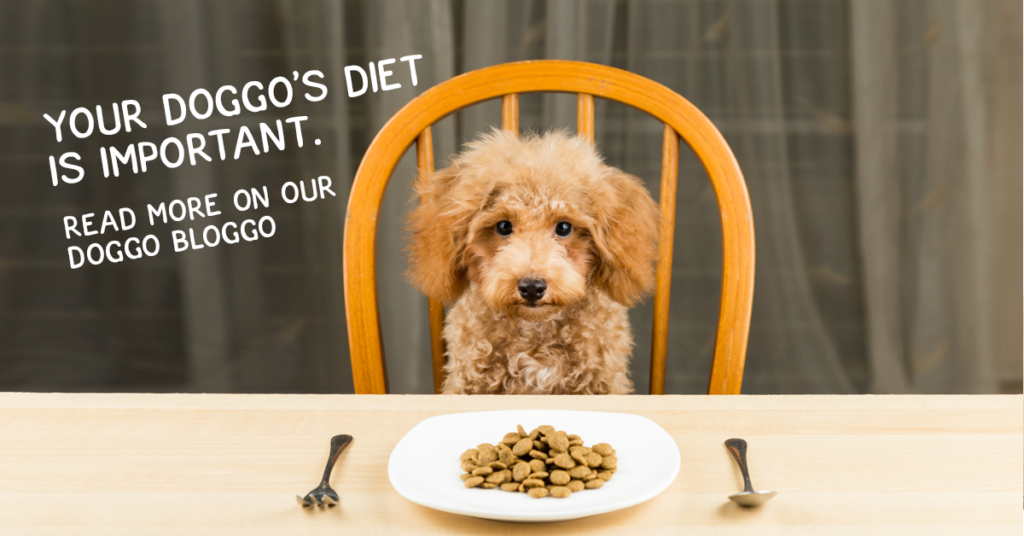Life is busy, and we don’t always have time to spend hours reading labels and comparing nutrition levels. How do you make sure you get the most convenient and healthiest food for your dog?

Ideally, you should get your commercial dog food from your vet, or buy a vet-recommended supermarket food. There are some great off-the-shelf products available. The best way to know which one will suit your pet is to consult with your vet. Different foods are designed for different life stages, energy levels, medical conditions and so on. A generic supermarket dog food might be fine for your dog, but it may not suit all dogs.
Carefully check the label of any supermarket dog food. Make sure that it is designed for the life stage your dog is at. Puppy food does not contain the same amount of protein and energy that an adult dog food does. A bouncy pupper needs more calories for all that cute energy and fast growth. For all dogs, make sure that there’s a good balance of protein and carbohydrate, with a bit of fat but not too much.
A fancy tag like ‘gourmet’ or ‘premium’ means very little. It’s the details on the nutritional label that will count where your dog’s health is concerned. Unless your dog has been taken off meat by your vet, the first ingredient listed should be a meat, not a carbohydrate or plant-based protein. Some meat by-products can provide extra nutrition, but they should not be the main ingredient in your dog’s food.
Remember to check the sell-by date on the dog food packaging, and to store dog food in a cool and dark place. If your dog is small and doesn’t eat much, buy smaller bags of food at a time. You don’t want opened bags of dry food sitting for longer than about five or six weeks, especially in humid areas.
If your dog has any medical issues or possible allergies, stick to the food that the vet recommends. Your vet can help you to find a diet for your dog that meets your budget, if necessary. Feeding your pet right will save you lots on vet bills in the long run.